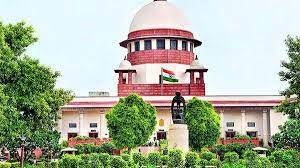

The Supreme Court has set a record this year in deciding cases. From January 1 to December 15, 52,191 petitions were disposed of compared to last year's 39,800. Chief Justice DY Chandrachud attributed this achievement to the reforms brought about by the efficient use of technology. This model should be followed by the High Courts and lower courts of the country. It is said that justice delayed is actually equal to justice denied. Civil cases which have been pending for decades are still pending in various courts of the country even after the death of the plaintiff and the defendant. The Union Law Minister himself, in reply to a question in the Rajya Sabha, said that there are 5.02 crore pending cases across the country. The Minister pointed out that complications in procedures, lack of number of judges, etc. were the reasons for the delay in settling the cases. There are 69,766 cases pending in the Supreme Court itself. The loss of protracted cases is borne by the parties who approach the courts for justice. There is nothing but good to the lawyers as the cases drag on. Each time the case is adjourned, the parties have to pay the lawyer to appear. A case may need to be adjourned for a number of reasons. Delay in production of prosecution witnesses is a regular reason for adjournment of the case. Only if the court, the lawyers, the prosecution and the police all work with one mind, this problem can be solved to some extent. Limits should also be set for the maximum adjournment of a case.
This year, 4919 new cases reached the Supreme Court. It is also a special thing that this year judgments were given in 17 cases heard by the constitutional benches. The five-judge bench headed by the Chief Justice conducted the maximum number of sittings in constitutional cases - 71 cases. Retired Malayali judge Justice KM Joseph is second in this category. The constitution bench under his leadership considered 20 cases.
E-filing, virtual hearings and use of digital records have helped in speedy disposal of cases in the Supreme Court. Special benches were also constituted to hear extraordinary cases. Effective use of modern technology can quickly reduce the backlog of cases. The shortage of judges in the lower courts should be addressed by the respective high courts. Similarly, the central government should also abandon the trend of keeping the list for appointment of judges to the High Courts and the Supreme Court without approval.